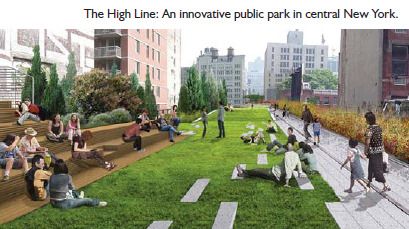In this new regular column, international experts will highlight community regeneration lessons that they believe are transferable to Scotland. Regular “Letter from America” contributor Denys Candy starts us off by arguing that fresh thinking and flexibility is the best.
Tough Times for Regeneration
Current conditions force us to look anew, sharpen our approach to regeneration. I propose five considerations for Scotland:
- Clarify the definition and, therefore goals, of regeneration
- Prioritise artful approaches, locally-driven
- Re-invent connections between local, regional and national efforts
- Insist on using resources smartly and flexibly
- Define the forthcoming period as one of Research and Development, regenerative “code-breaking.”
The Scottish Government defines regeneration as a “holistic process of reversing social and physical decline.” Borrowing from the SURF manifesto, I suggest a re-write: Regeneration is a collective holistic endeavour to improve interrelated aspects of community health.
Prioritising Simultaneity
My current mantra remains: we need to skillfully allocate resources to projects that seek simultaneous improvements in environmental, economic, physiological, psychological and cultural health. Regeneration takes place in a wider context – planetary crisis, the foreseeable end of many natural resources, extreme weather events. Regenerative projects must address local manifestations of global warming; improve human and planetary health.
Although some news in the USA is grim – federal budget deficits, States favoring assaults on natural environments for profit – local investigation restores one’s faith in the imaginative potential of people to respond when familiar systems break down. Love of place, resilience, tenacity and smart uses of resources (economic,environmental, cultural) artfully blend to drive important innovations from the High Line (an elevated linear park on a former rail line) in Manhattan to scattered-site urban farming in back yards in Los Angeles.

The High Line is an innovative public park built on a disused elevated railway line in New York City.
An American sampler includes urban farms and gardens, treeplantings, ecological restoration, cultural happenings and environmentally sensitive improvements to housing or business districts. Not all projects are necessarily artful or innovative. In my experience those that are tend to work between multiple systems (public and private sector), use resources creatively, involve a broad cast of multi-disciplinary characters, stay grounded in local and regional vision discerned over time through deep engagement and deliver medium-term results linked to longer-term regeneration goals.
The Bright Side
When viewed separately, the scale of many local efforts may appear insignificant. Taken together, we can amplify their impact by paying more attention to creating stronger connective tissue, more links between them regionally and nationally for shared learning and forging clearer ties to regenerative goals. Doing so across fifty States is tough. In Scotland should it not be more feasible? Compared to the USA, the key players in all sectors operate in reasonably close proximity. SURF’s role as convener and connector can be vital in exploring new forms of working.
All resources, not just financial, will need to be deployed smartly. Government, therefore, must be flexible. Resources from various funding streams may need to be pooled, allocated differently in different places depending on clearly articulated regional and local goals for enabling better health. As long as the shared goal is clear, not only funds but regulations and lines of authority need to be flexible to better serve goal attainment. The coming period of smarter resource allocation can be viewed as a time of Research and Development; to refine and accelerate enabling conditions for successful regeneration and better health.
As long as the shared goal is clear, not only funds but regulations and lines of authority need to be flexible to better serve goal attainment. The coming period of smarter resource allocation can be viewed as a time of Research and Development; to refine and accelerate enabling conditions for successful regeneration and better health. This code has yet to be broken; should Scotland not lead the way?
